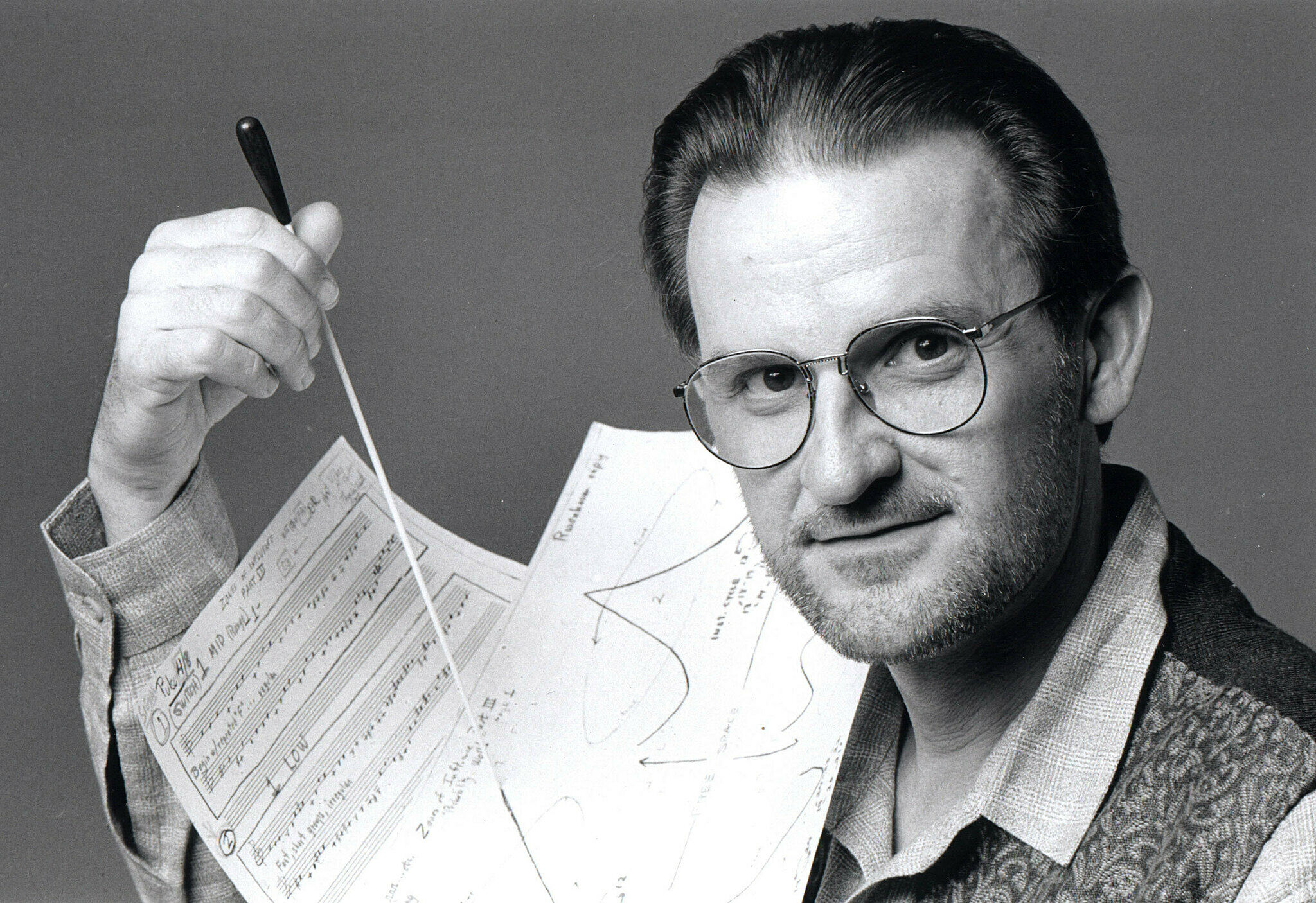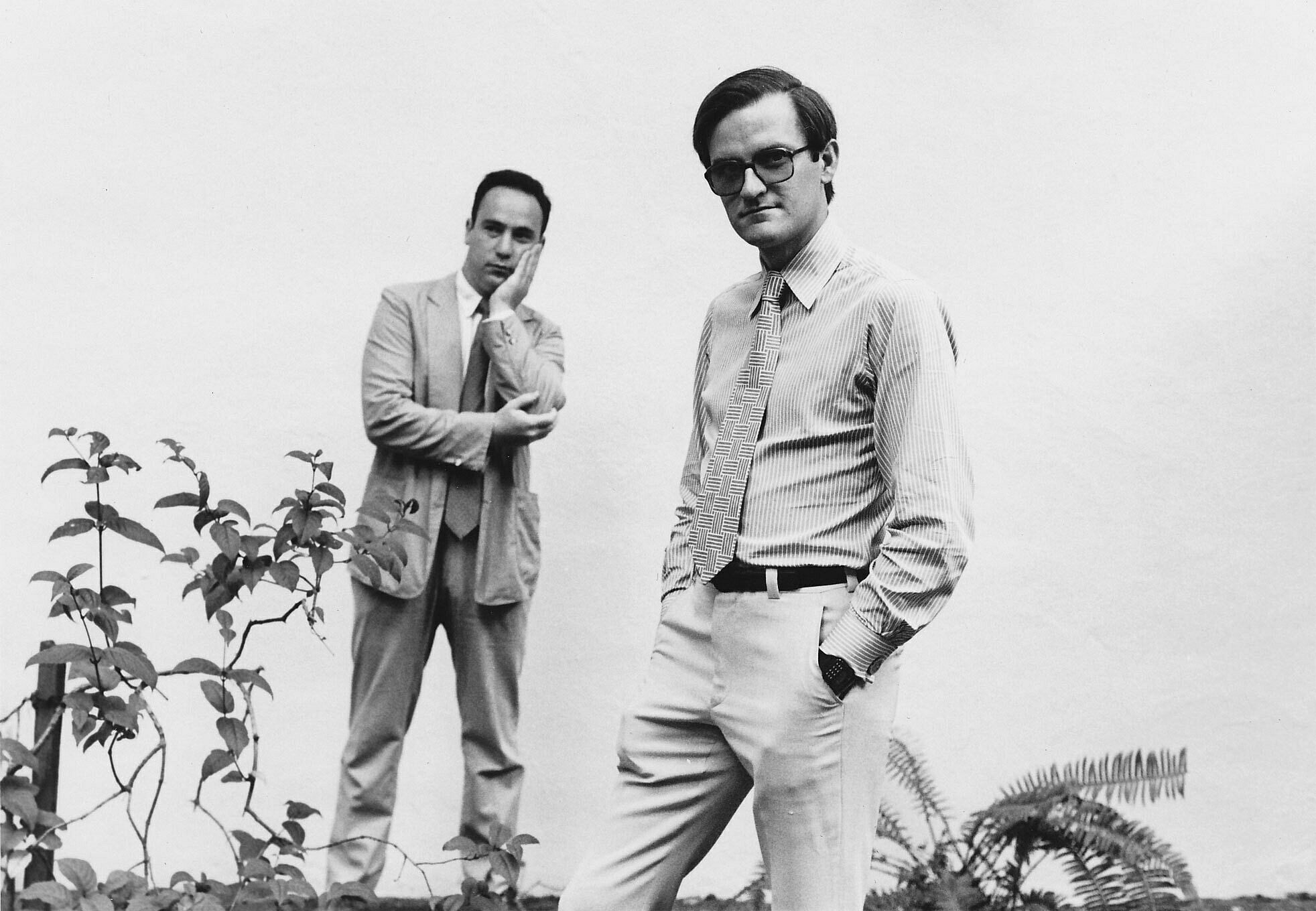David Rosenboom:
Ringing Minds and Choose Your Universe
Sat, May 23, 2015
8–10 pm
This event has passed.
See more events like this.
Become a member today!
Join now to enjoy early access to exhibitions and events, unlimited free admission, guest privileges, and more.
Join nowLearn more about access services and programs.
Floor Three, Susan and John Hess Family Theater
Ringing Minds
Since the late 1960s, David Rosenboom has made works exploring extended musical interface with the human nervous system. Ringing Minds—collective brain responses interacting in a spontaneous musical landscape (2014), created in collaboration with computational neuroscientist and musician Tim Mullen, and cognitive scientist and performer-composer Alex Khalil, offers a significant step forward in the evolution of this paradigm. Using a technique called hyperscanning, the brains of several musical listeners are treated as one hyper-brain to investigate concepts about complexity and structural forms manifested concurrently in music and multiple brains, along with resonances that can be detected within and between listeners and performers. In Ringing Minds, resonant patterns detected in the hyper-brain’s activity are sonified with a field of ringing, electronic sound resonators. Two musicians, one with an electronic violin and another with a unique xylophone-like instrument made of stone, called a lithophone, respond to activity in this sound field. When, in turn, the hyper-brain responds to sounds created spontaneously by the musicians, the resonator field undulates, as if stones were being tossed into a vast sonic lake, and we hear their ever expanding ripples.
Thanks to Syntrogi Inc. for assisting in the development of Ringing Minds and to Cognionics, Inc for providing EEG hardware. Thanks to InteraXon Inc. for providing Muse™ brainwave sensing headbands used in recent neuromusic work.
Choose Your Universe
In his writings on Propositional Music, David Rosenboom describes a method of composing that always reaches back to an important principle for each new beginning, which asks, “What will be the domain of distinction and thought in this work from which the means for delineating the entities that will receive compositional attention and choice making may emerge for each musical action?” This process of continuous beginnings belies the very idea of style. A genre-less musical world thus unfolds. In Choose Your Universe, David Rosenboom, with Yamaha Piano/Disklavier, electronics, and violin, is joined by trumpet virtuoso and composer, Daniel Rosenboom, to create an assemblage in time drawing from several major works: In the Beginning: Etude III (Keyboard & Two Oranges) (1980)—from Rosenboom’s In the Beginning series of nine major works composed between 1978 and 1981, Tango Secretum (2006)—referring to writings by Francesco Petrarca and poet, Martine Bellen, Music for Unstable Circuits (1968 and later versions)—both digital and analog, Kicking Shadows (2007)—referencing James Brown and Zen master, Chi-fo (a.k.a. Feng-Seng), excerpts from the concert-length work for piano and interactive software, Bell Solaris (1998), and excerpts from Rosenboom’s major opus for soloist with instruments and computer synthesis/processing, Systems of Judgment (1987). Choose Your Universe highlights the vast range of musical types David Rosenboom has traversed in his musical life.
Propositional Music is presented by ISSUE Project Room in collaboration with the Whitney Museum of American Art; organized by Tommy McCutchon and Lawrence Kumpf with Jay Sanders, Curator of Performance at the Whitney.
Event tickets are required, and included in the cost of general admission ($22 adults; $18 seniors and students).


